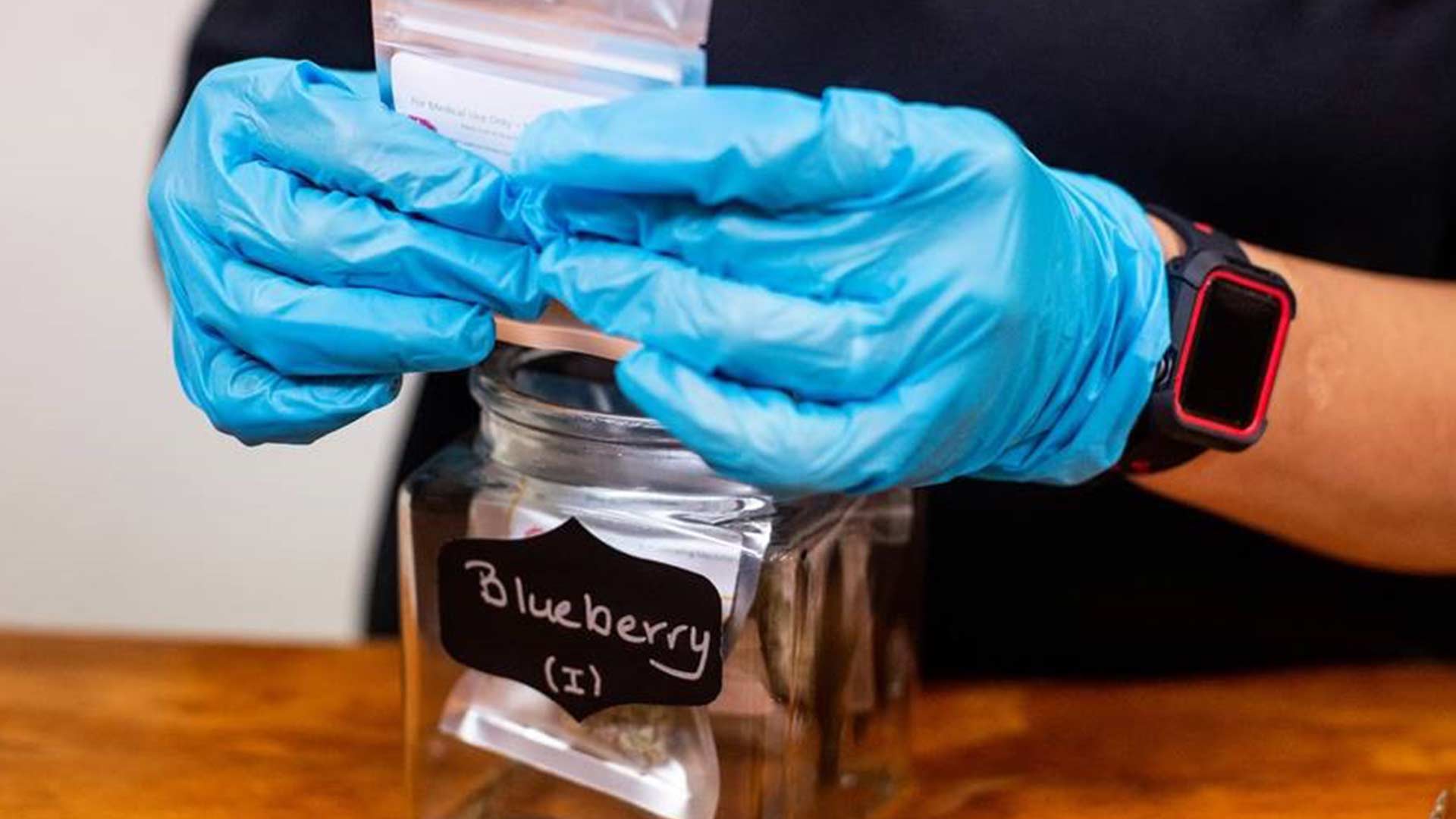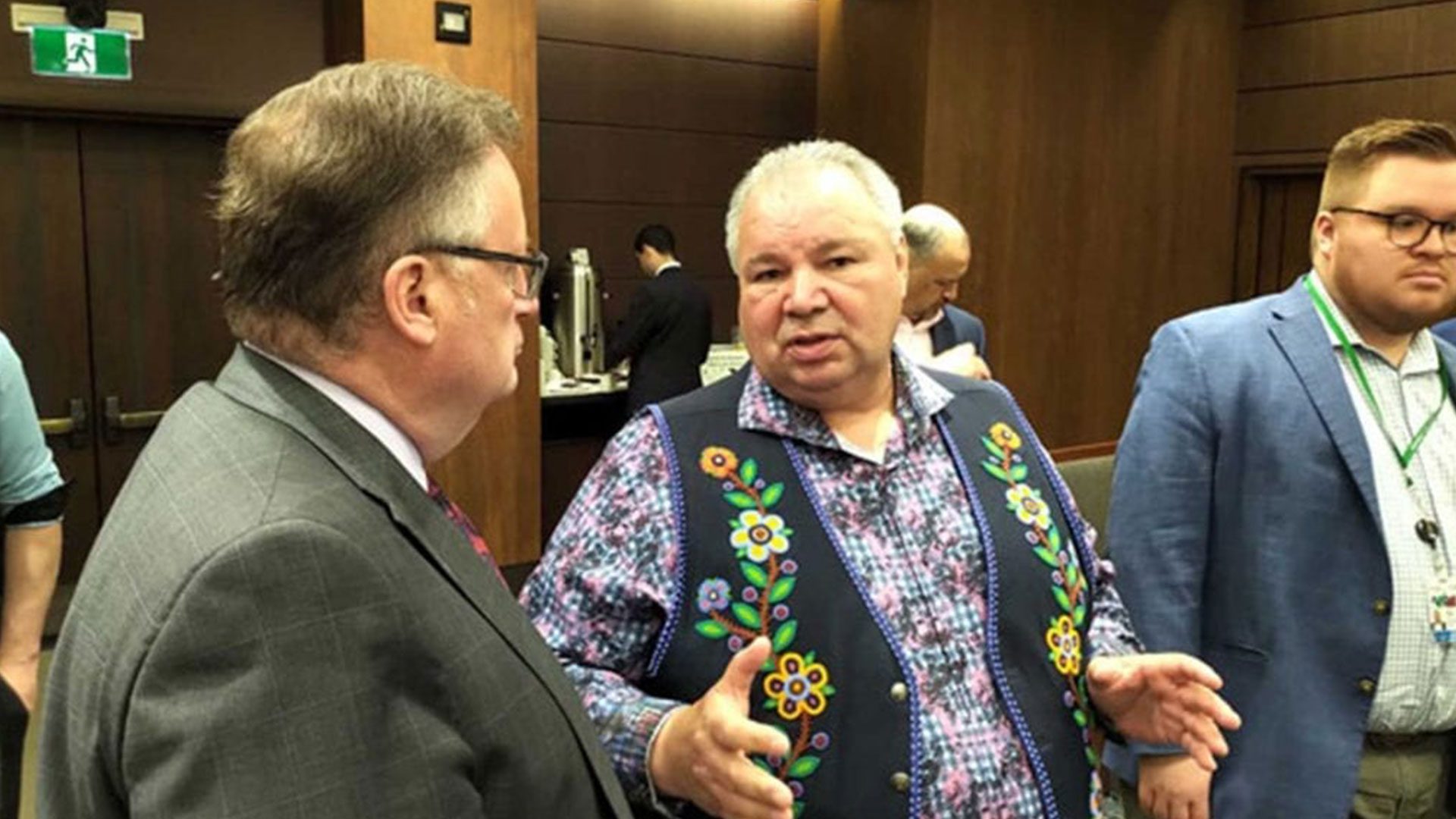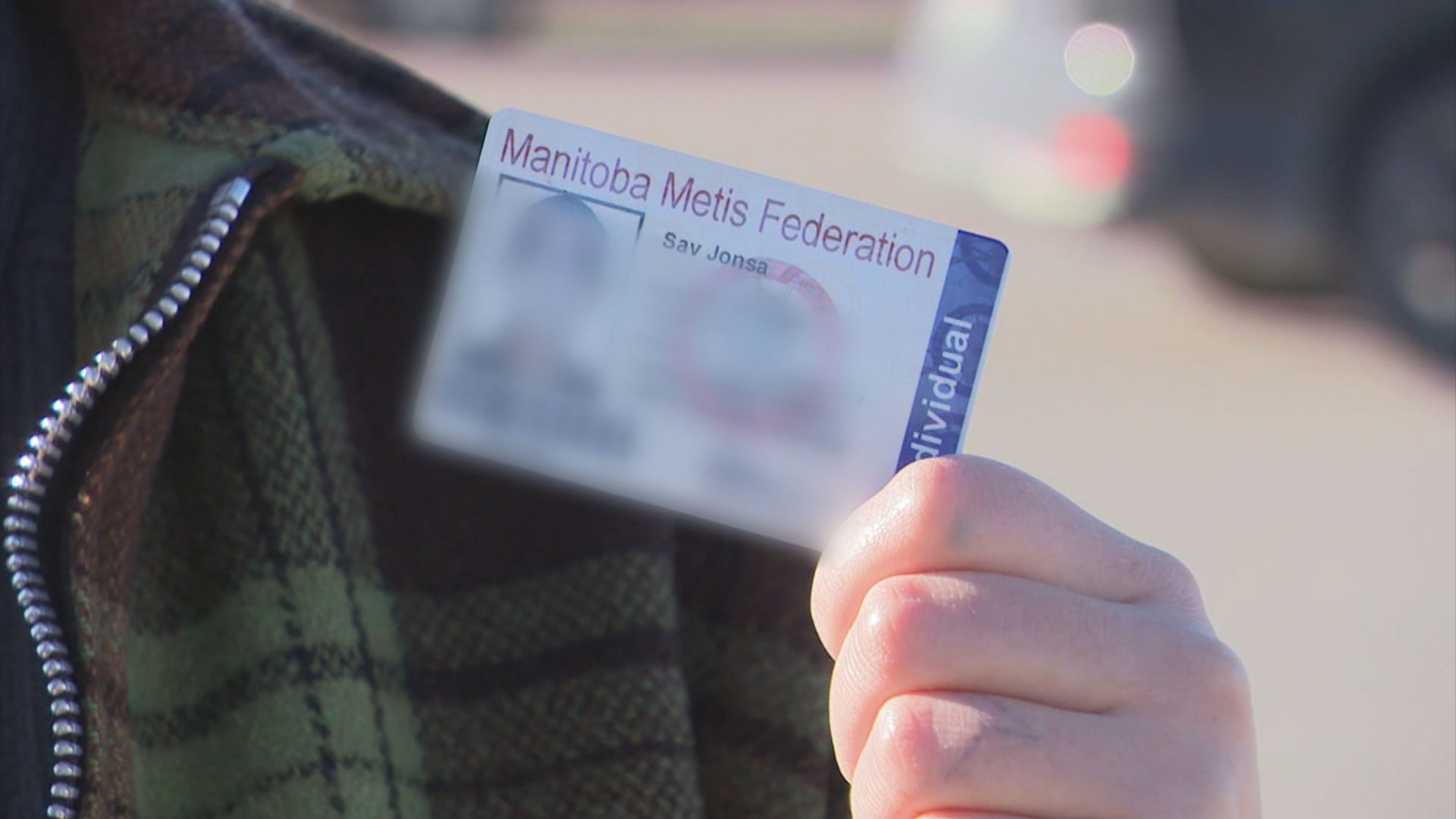Citizens of the Manitoba Métis Federation are being treated differently when trying to enter or buy products at liquor and cannabis stores in Winnipeg, an APTN News investigation has found.
APTN used a hidden camera while presenting an MMF citizenship card when asked for proof of age at 15 liquor and cannabis stores – a retail network regulated by the Manitoba government.

The card, which is secured with holographic images, shows the photo and birthdate of the holder, which is similar to the networks’ preferred I.D. of a Manitoba drivers’ licence.
Seven retailers accepted the card without issue – one even offered a discount – while three refused the card while providing inconsistent explanations. Five didn’t ask for I.D. at all.
APTN was told the MMF card was once accepted as I.D. but not anymore, that it could be used alongside a second piece of less secure I.D., and it was not recognized beause it wasn’t government-issued.
“We can’t actually take Manitoba Métis cards,” said an employee who wasn’t quite sure why. “We have to take actual government issued – I know it’s issued by the government…I’ve been through this.”
The MMF was recognized as a government in 2021 after signing a self-government agreement with Canada.

Manitoba’s liquor and cannabis industry is controlled by two government organizations – the Liquor, Gaming and Cannabis Authority of Manitoba (LGCA) and Manitoba Liquor & Lotteries (MBLL).
The LGCA regulates and licenses liquor and cannabis stores, while MBLL focuses on the sale and distribution of liquor, as well as the sourcing and distribution of cannabis to private retailers.
Manitoba’s government-operated, retail Liquor Marts sell a wide variety of liquor products, with a small selection of privately owned vendors selling beer or wine.
Liquor Marts have required identification to enter their stores since 2019, when the Crown corporation first implemented controlled entrances as an anti-theft practice.
In an emailed statement to APTN, MBLL said MMF cards weren’t secure enough to enter stores because they lack “some required security features, making it easier for a minor or other individual to use a stolen or fake card.”

This bothered MMF President David Chartrand who said the cards should be accepted.
“I’m very confident in our cards,” Chartrand told APTN in an interview.
“We don’t do them ourselves, they’re done by a security firm. We send them out, the security firm develops them for us, and puts all the holograms to ensure that nobody can just walk into some Staples or something and copy it. You can’t.”
Chartrand said many Indigenous Peoples don’t have regular I.D. and that should be taken into consideration.
“If you have a driver’s licence, that’s the only place you can get a photo I.D. Or a passport. There is no other photo I.D. system in Canada. So, for us, our photo I.D. on our card is very essential.”

One of the cards MBLL does accept as a secondary piece of identification is the Certificate of Indian Status. It is a laminated card without holograms or barcodes, and provides less information about the cardholder’s appearance than an MMF citizenship card.
It is up to the LGCA, which regulates and licenses liquor and cannabis stores, to determine which identification is acceptable for buying products.
“[The MMF citizenship card] does not currently fall into the category of government-issued I.D. and, as such, it is not an accepted form of identification under the regulations,” said Alison Mitchell, the LGCA’s manager of communications.
The MBLL said while it may expand the types of I.D. it accepts at controlled entrances in the future, it is relying on the LGCA’s requirements for now. Meaning, customers need to have the same I.D. to enter a store as they do to buy a product.
Still, Chartrand was shocked to hear he couldn’t use his MMF citizenship card to buy liquor or cannabis in the homeland of the Metis nation and Red River Settlement.

“These cards we have are well secured,” he said, “and if you have an issue with them, I’d like them to show me their issue. Send it to me, write me a letter, or tell me where because I will challenge them on that.”
Chartrand said he regularly uses his MMF card as I.D. at airports.
“I’ve never been turned down by Air Canada or even WestJet or any of the airlines on my card,” he noted.
The MMF citizenship card contains a photo of the holder, date of birth, height, gender, eye colour, signature, and date codes. It also includes holographic images, a barcode, and the citizen’s membership number.
To obtain a card is much more complex.

Only members of the MMF receive a card as proof of their citizenship. Applicants must submit an official genealogy completed by the St. Boniface Historical Society to prove their heritage, which requires extensive documentation and time.
These are not cards handed out at conventions or ordered online. They have historical backing showing the person on the card is who they say they and their family are.
MBLL said it reached out to the MMF to “provide guidance on how their citizenship card can meet the security requirements needed for entry at controlled entrance[s]”.
But Chartrand was unaware of this and said he hadn’t been contacted personally.
The MMF reviewed its records at the request of APTN and said MBLL had called once but only after APTN began asking questions.
The MMF said it tried to follow up with MBLL twice and received no response.










